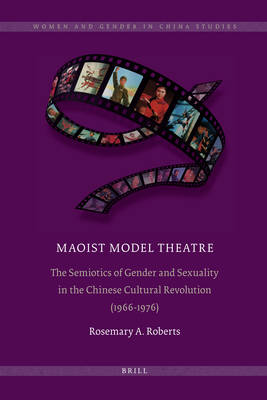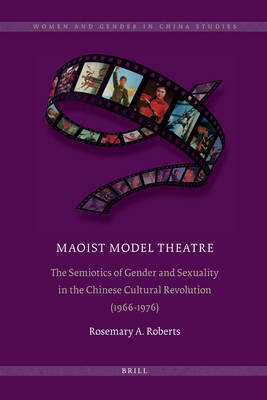
- Afhalen na 1 uur in een winkel met voorraad
- Gratis thuislevering in België vanaf € 30
- Ruim aanbod met 7 miljoen producten
- Afhalen na 1 uur in een winkel met voorraad
- Gratis thuislevering in België vanaf € 30
- Ruim aanbod met 7 miljoen producten
Zoeken
Maoist Model Theatre
The Semiotics of Gender and Sexuality in the Chinese Cultural Revolution (1966-1976)
Rosemary Roberts
€ 212,45
+ 424 punten
Omschrijving
Here is a convincing reflection that changes our understanding of gender in Maoist culture, esp. for what critics from the 1990s onwards have termed its 'erasure' of gender and sexuality. In particular the strong heroines of the yangbanxi, or 'model works' which dominated the Cultural Revolution period, have been seen as genderless revolutionaries whose images were damaging to women. Drawing on contemporary theories ranging from literary and cultural studies to sociology, this book challenges that established view through detailed semiotic analysis of theatrical systems of the yangbanxi including costume, props, kinesics, and various audio and linguistic systems. Acknowledging the complex interplay of traditional, modern, Chinese and foreign gender ideologies as manifest in the 'model works', it fundamentally changes our insights into gender in Maoist culture.
Specificaties
Betrokkenen
- Auteur(s):
- Uitgeverij:
Inhoud
- Aantal bladzijden:
- 312
- Taal:
- Engels
- Reeks:
- Reeksnummer:
- nr. 2
Eigenschappen
- Productcode (EAN):
- 9789004177444
- Verschijningsdatum:
- 1/10/2009
- Uitvoering:
- Hardcover
- Formaat:
- Genaaid
- Afmetingen:
- 163 mm x 244 mm
- Gewicht:
- 589 g

Alleen bij Standaard Boekhandel
+ 424 punten op je klantenkaart van Standaard Boekhandel
Beoordelingen
We publiceren alleen reviews die voldoen aan de voorwaarden voor reviews. Bekijk onze voorwaarden voor reviews.








